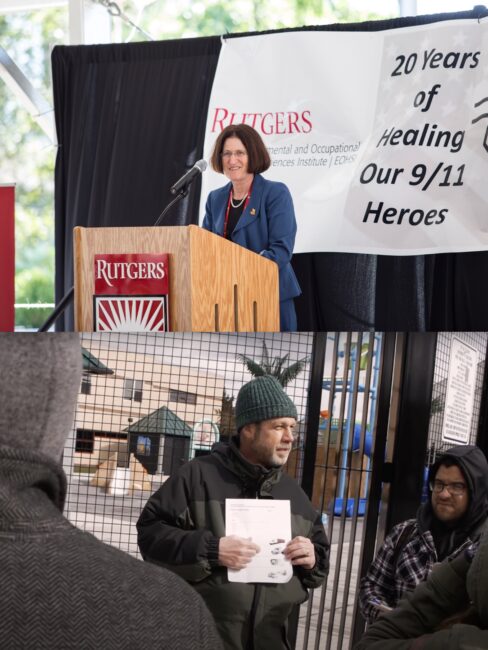EOHSI and CEED members instrumental in informed policymaking at national, state and local levels.

A Rutgers study, led by Robert Laumbach, director of community outreach for the Rutgers Center for Environmental Exposures and Disease (CEED), was instrumental in helping Elizabeth’s city council pass an ordinance prohibiting loads exceeding four tons on First Street – essentially banning tractor trailers from the residential street.
The effort to include uterine cancer among conditions covered by the WTC Health Program began when Iris Udasin, principal investigator for the program at Rutgers.
“I had already authored several studies that had shown an excess of all cancers in responders, and we knew that a lot of the chemicals people had been exposed to were endocrine disruptors that can lead to this type of cancer, so it made sense to request this addition,” Udasin said.
Just two of the many projects were EOHSI and CEED members have contributed to make a difference and sit at the vanguard of informed policymaking at national, state and local levels.
Source: Rutgers Health News – December, 19, 2023
Copyright © 2021, Rutgers, The State University of New Jersey

